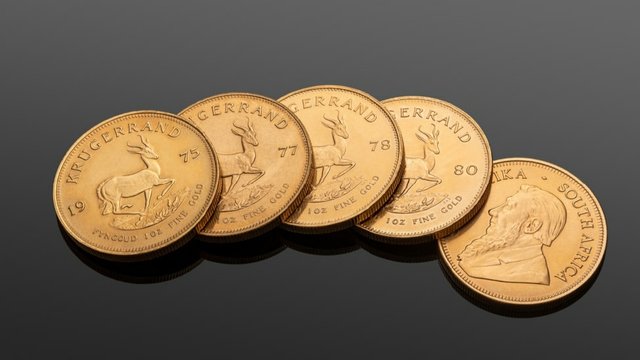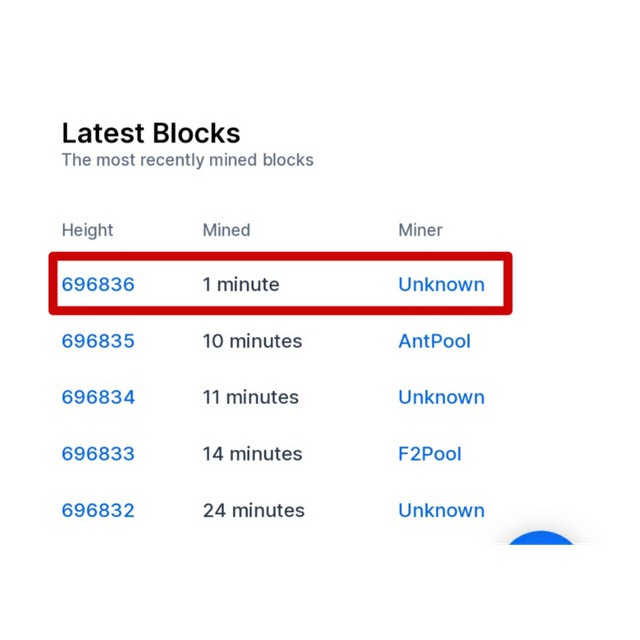Homework | Steemit Crypto Academy [Beginners' Level] | Season 3 Week 8 | Blockchain Rewards
🔴 Blockchain Rewards 🔴
In your own words, explain mining and block reward.
Mining
• A digital ledger that can not be modified can be referred to as a blockchain. The processes of verifying, validating and storing transactions on blockchain are carried out by so-called miners. Information about all these transactions is stored open to the public. Therefore, mining can be introduced as a way for miners to obtain cryptographic money by solving cryptographic equations in a blockchain using computers. Mining involves entering datasets into a public ledger, collecting transaction records and validating them. Also, the mining process requires a large amount of equipment such as computers. Therefore, their maintenance cost is also high. Computers also require a lot of electricity to run, so the energy loss is high. There are advantages to the mining process, but these are its disadvantages.
Block Rewards
• Block rewards are a new type of bitcoin gift given to miners during the mining process. To win this prize, miners must successfully verify transactions, and solve complex mathematical puzzles.
What do you understand by the Bitcoin Halving?
• As I understand it bitcoin halving is a measure taken to increase the value of bitcoin by reducing its inflation rate. Reducing the rewards of Bitcoin mining by half (50%) will halve the amount of bitcoin circulating in the ecosystem. This will increase the value of bitcoin.
• This process takes place every four years after the blockchain has created 210,000 blocks. In 2012, the reduction was 50 BTC to 25 BTC. This the first bitcoin halving. The last bitcoin halving took place last year. It will happen again in 2024.
What are the effects of the Halving on miners?
• As mentioned above bitcoin halving inevitably affects miners as it halves the reward for miners bitcoin mining. This gives miners new experience about cryptocurrencies, which can be used to solve cryptographic equations faster and earn more coins.
• Bitcoin halving lowers the inflation rate of bitcoin and increases the value of bitcoin in the stock market. For these reasons alone, I see halving as an incentive for miners to continue the mining process.
What is the current block height on the Bitcoin blockchain? How many more blocks before the next halving?(Screenshots and Full working)
To answer this question I will use a screenshot taken from blockchain.com
It helps me to calculate the current block height of the Bitcoin blockchain and how many more blocks there are before the next half.
The bitcoin halving process takes place every four years after 210,000 blocks have been created.
Current block height :- 696, 836 blocks
Block height for the next halving :- 210, 000 × 4
= 840, 000
Number of blocks until the next halving :-
840, 000 - 696, 839 = 143, 161
Do you think Steem’s inflation rate reduction can affect other coins? Why?
• I was currently dealed with steem through a binance exchange. This exchange allows steem to deal with bitcoin and ethereum pairs. The value of these transactions in a day is more than a million dollars. So I think lowering the inflation rate in steem will affect bitcoin and ethereum in some way. If we have more steem, it can be exchanged for more BTC or more ETH. But I do not think that the reduction in the inflation rate of steem will affect other currencies.
What is the current block height on the Steem blockchain? How many more blocks before the next 0.01% reduction?(Screenshots and Full working)
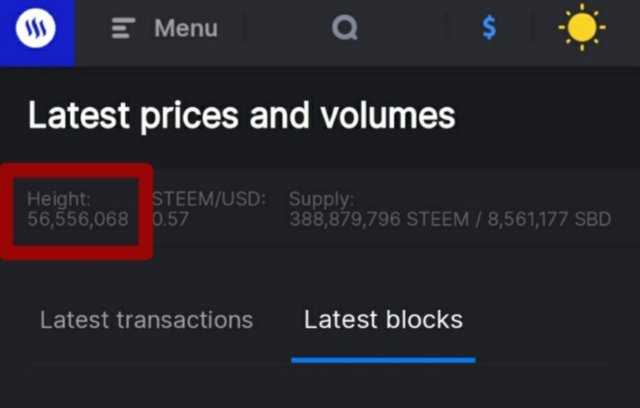
Screenshot from steemscan.com
Current block height :- 56, 556, 068 blocks
Steem inflation rate decreasing by 250,000 blocks = 0.01%
Hence the current reduction :- 56, 556, 068 ÷ 250, 000 = 226.22
The number of reductions made so far is 226.
The height of the blocks for the next reduction :- 226 × 250, 000 = 56, 500, 000
Hence, number of blocks until next reduction :- 56, 556, 068 - 56, 500, 000 = 56, 068 blocks
Continuation of last week’s work:
What is the current value of BTC on the day you are performing this task? If you made a purchase of $2,500 then,
a.) how many satoshis would you have?
b.) what is the value of a satoshi for that day?
(Show full working and correct to 3 s.f)
(1 satoshi = 0.00000001 BTC)
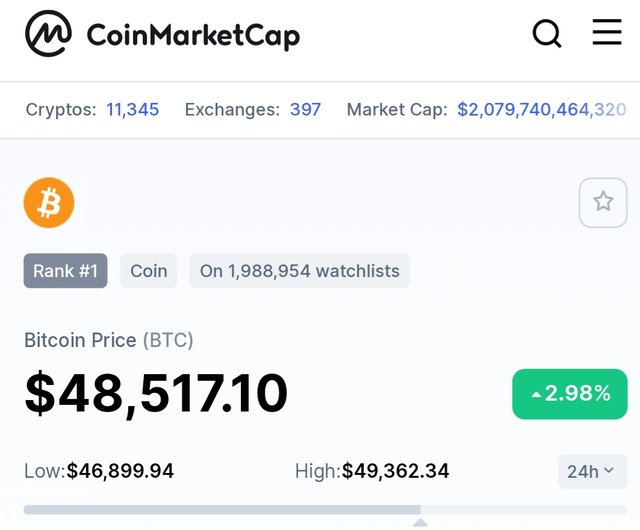
Screenshot from coinmarket cap
Current BTC price :- $48, 517.10
1 BTC = $ 48, 517.10
If I made a purchase of $2,500 then,
a) $2, 500 = 2,500 ÷ 48,517.10
= 0.0515282241 btc
Hence the number of Satoshi received :- 0.0515282241 ÷ 0.00000001 = 5, 152, 822.41
b) 1 satoshi = 0.00000001 BTC
Therefore, the value of one Satoshi today :-
48, 517.10 × 0.00000001 = $0.000485171
What is the current value of BNB on the day you are performing this task? If you made a purchase of $30 then,
a.) how many Jagers would you have?
b.) what is the value of a Jager for that day?
(Show full working and correct to 3 s.f)
(1 jager = 0.00000001 BNB)
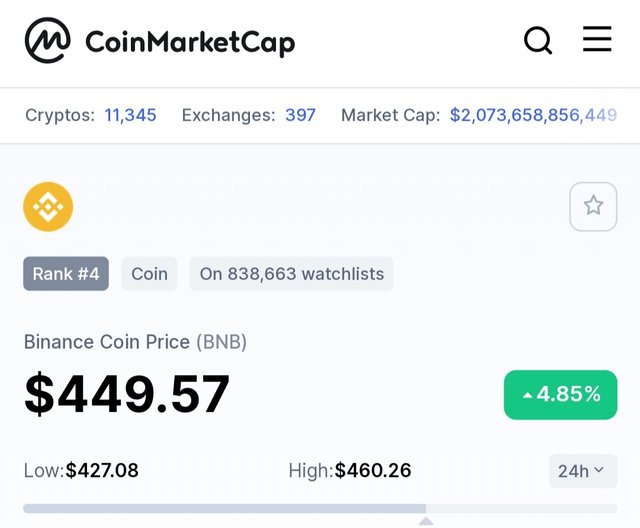
Screenshot from coinmarket cap
Current BNB price :- $449.57
1 BNB = $449.57
If I made a purchase of $30 then,
a) $30 :- 30 ÷ 449.57 = 0.0667304313 BNB
Hence the number of jager received :- 0.0667304313 ÷ 0.00000001 = 6, 673, 043.13
b) 1 jager = 0.00000001 BNB
Therefore, the value of one jager today :-
449.57 × 0.00000001 = $0.0000044957
Professor @awesononso's article and a few other articles helped me a lot to complete this homework successfully.
Thanks for reading

